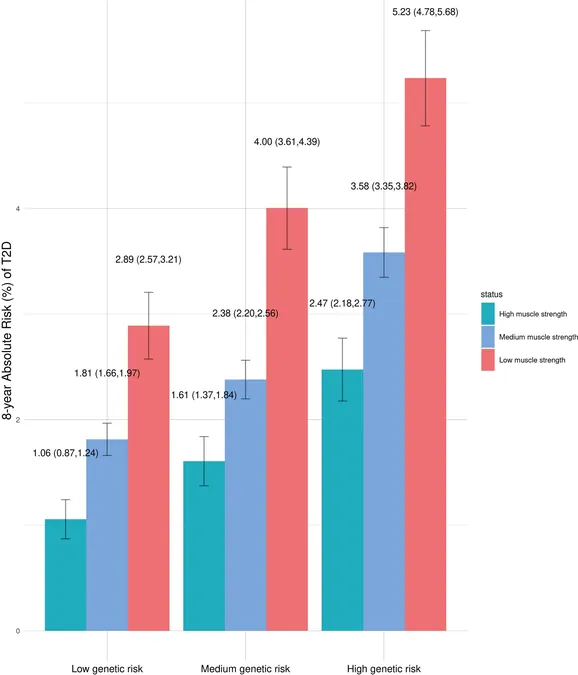
Household Dogs: The Hidden Danger Spreading Antimicrobial-Resistant Salmonella
2025-01-14
Author: Mei
Introduction
A recent groundbreaking study from researchers at Pennsylvania State University (Penn State) has shed light on a critical yet overlooked risk: household dogs as potential carriers of zoonotic pathogens, particularly antimicrobial-resistant nontyphoidal Salmonella. As these researchers discovered, the intimate relationship between humans and dogs increases the likelihood of transmission of these dangerous bacteria, creating serious public health concerns.
The Growing Threat of Antimicrobial-Resistant Salmonella
With Salmonella increasingly exhibiting resistance to antibiotics, the implications for human health are alarming. The bacteria can be contracted through various means, including touching an infected animal, accidental contact with fecal matter, or consuming contaminated food. Though Salmonella infections in dogs are less common, studies have shown a significant number of healthy dogs can still harbor the bacteria, thus acting as reservoirs for infection.
Biosurveillance Insights
The recent study utilized extensive biosurveillance methods to track the antimicrobial-resistant strains of Salmonella from domesticated dogs. Researchers analyzed data from the FDA’s Veterinary Laboratory Investigation and Response Network, identifying a staggering 87 cases of nontyphoidal Salmonella in dogs between May 2017 and March 2023. When matching these canine strains to human cases sourced from the National Institute of Health’s database, they found 77 suspected zoonotic cases spanning 164 strains collected from 17 states across the U.S.
Concerns Raised by Study Findings
What makes this study particularly concerning is the identification of 16 nontyphoidal Salmonella isolates from humans that were closely related to several dog-associated strains. The researchers noted that all identified strains possessed antimicrobial-resistant properties critical to human health, raising alarms about their potential to exacerbate existing public health crises.
Statements from Researchers
As Sophia Kenney, a leader in the study, emphasized, it is imperative to understand the role of companion animals in transmitting diseases like Salmonella. "While we often focus on agricultural sources of infection, we need to remember that our pets have direct contact with us. This close bond makes it crucial to reassess potential risks," she stated. Kenney also highlighted the importance of proper hygiene practices, including regular hand washing after interacting with pets, to curb the spread of such pathogens.
Recent Pet Food Recall
Adding to this issue is the recent recall of pet food, specifically the Blue Ridge Beef Puppy Mix, which was pulled from shelves due to Salmonella contamination. This incident serves as a stark reminder of how easily outbreaks can begin and emphasizes the need for vigilance concerning pet food safety.
Call for Public Awareness
Moving forward, researchers advocate for greater public awareness related to the risks that pet dogs pose in spreading antimicrobial-resistant Salmonella. They stress that simple hygiene measures can significantly reduce the chances of infection. Dr. Nkuchia M’ikanatha, lead epidemiologist for the Pennsylvania Department of Health, remarked, "Our dogs are family, but even the healthiest pup can carry Salmonella. Awareness and hygiene are our first lines of defense."
Historical Context and Conclusion
Historically, Salmonella has been intertwined with human agriculture for thousands of years, and as the study demonstrates, it continues to pose a threat, especially in households with dogs. As more than 40% of Pennsylvania households, and over half of the U.S. homes, have dogs, recognizing this persistent danger is vital for safeguarding public health and ensuring the safety of our four-legged companions.
Stay tuned as this story develops, and remember: your pet may be cute, but that doesn't mean they aren't a potential source of danger!




 Brasil (PT)
Brasil (PT)
 Canada (EN)
Canada (EN)
 Chile (ES)
Chile (ES)
 Česko (CS)
Česko (CS)
 대한민국 (KO)
대한민국 (KO)
 España (ES)
España (ES)
 France (FR)
France (FR)
 Hong Kong (EN)
Hong Kong (EN)
 Italia (IT)
Italia (IT)
 日本 (JA)
日本 (JA)
 Magyarország (HU)
Magyarország (HU)
 Norge (NO)
Norge (NO)
 Polska (PL)
Polska (PL)
 Schweiz (DE)
Schweiz (DE)
 Singapore (EN)
Singapore (EN)
 Sverige (SV)
Sverige (SV)
 Suomi (FI)
Suomi (FI)
 Türkiye (TR)
Türkiye (TR)
 الإمارات العربية المتحدة (AR)
الإمارات العربية المتحدة (AR)